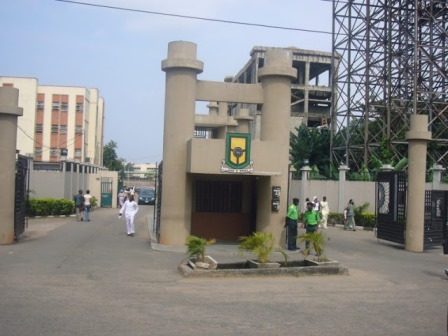Top 100 Best Polytechnics in Nigeria (2024, NBTE Ranking)
The ranking of the best Nigerian polytechnics to attend according to the National Board For Technical Education (NBTE) was released on March 2023. This data is still valid for 2024 as seen on their website. These schools listed here are all accredited, and have distinguished themselves as the best polytechnics in Nigeria that offers qualitative education to their various students.

NBTE is the academic body saddled with the authority to rank Nigerian polytechnics on behalf of the government just as the National University Commission is in charge of rating Nigerian universities. According to NBTE current ranking of the top 100 Nigerian polytechnics, Federal Polytechnic Nekede, Imo state ranks first, followed by the Federal Polytechnic, Ilaro in Ogun State. You would also see other State owned Polytechnics listed and a few private polytechnics on the list.
TOP 100 BEST POLYTECHNICS IN NIGERIA (2024)
Below is the list showing the NBTE ranking of top 100 polytechnics in Nigeria this 2024:
- Federal Polytechnic Nekede, Imo State
- Federal Polytechnic, Ilaro, Ogun State
- Kaduna Polytechnic, Kaduna, Kaduna State
- The Polytechnic, Ibadan, Oyo State
- Federal Polytechnic, Bida, Niger State
- Auchi Polytechnic, Auchi, Edo State
- Institute of Management & Technology, Enugu, Enugu State
- Federal Polytechnic, Offa, Kwara State
- Rufus Giwa Polytechnic, Owo, Ondo State
- Yaba College of Technology, Yaba, Lagos State
- Federal Polytechnic, Oko, Anambra State
- Federal Polytechnic, Idah, Kogi State
- Federal Polytechnic, Ede, Osun State
- Kwara State Polytechnic, Ilorin, Kwara State
- Federal Polytechnic, Ile-Oluji, Ondo State
- Lagos City Polytechnic, Ikeja, Lagos State
- Federal Polytechnic, Mubi, Adamawa State
- Kano State Polytechnic, Kano, Kano State
- Lagos State Polytechnic, Ikorodu, Lagos State
- Delta State Polytechnic, Otefe, Delta State
- Dorben Polytechnic, Abuja, FCT
- Federal Polytechnic, Ukana, Akwa Ibom State
- Hassan Usman Katsina Polytechnic, Katsina, Katsina State
- Waziri Umaru Polytechnic, Birnin Kebbi, Kebbi State
- Akanu Ibiam Federal Polytechnic, Unwana, Afikpo, Ebonyi State
- Heritage Polytechnic, Ikot Udota, Eket, Akwa Ibom State
- Igbajo Polytechnic, Igbajo, Osun State
- Imo State Polytechnic, Umuagwo, Ohaji, Imo State
- Delta State Polytechnic, Ogwashi-Ukwu, Delta State
- Federal Polytechnic, Nassarawa, Nasarawa State
- Grace Polytechnic, Surulere, Lagos State
- Kogi State Polytechnic, Lokoja, Kogi State
- Federal Polytechnic, Ado Ekiti, Ekiti State
- Hussaini Adamu Federal Polytechnic, Kazaure, Jigawa State
- Our Saviour Institute of Science, Agriculture & Technology, Emene, Enugu State
- Plateau State Polytechnic, Barikin Ladi, Plateau State
- Ramat Polytechnic, Maiduguri, Borno State
- Osun State College of Technology, Esa-Oke, Osun State
- St. Mary Polytechnic, Kwamba, Suleja, Niger State
- Wolex Polytechnic, Iwo, Osun State
- Fidei Polytechnic, Gboko, Benue State
- Ibarapa Polytechnic, Eruwa, Oyo State
- The Polytechnic, Ile-Ife, Osun State
- AirForce Institute of Technology (AFIT), Kaduna, Kaduna State
- Nasarawa State Polytechnic, Lafia, Nasarawa State
- AbubakarTatari Ali Polytechnic, Bauchi, Bauchi State
- Benue State Polytechnic, Ugbokolo, Benue State
- Delta State Polytechnic, Ozoro, Delta State
- Oke-Ogun Polytechnic, Shaki, Oyo State
- Abia State Polytechnic, Aba, Abia State
- Federal Polytechnic, Bauchi, bauchi State
- Federal Polytechnic, Damaturu, Yobe State
- Kings Polytechnic, Ubiaja, Edo State
- Lighthouse Polytchnic, Benin, Edo State
- Niger State Polytechnic, Zungeru, Niger State
- Zamfara State College of Arts and Science, Gusau, Zamfara State
- Covenant Polytechnic, Aba, Abia State
- Osun State Polytechnic, Iree, Osun State
- Lens Polytechnic, Offa, Kwara State
- Umaru Ali Shinkafi Polytechnic, Sokoto, Sokoto State
- Templegate Polytechnic, Aba, Abia State
- Adamawa State Polytechnic, Yola, Adamawa State
- Akwa Ibom State College of Arts and Science, Nung Ukim, Akwa Ibom State
- Al-Hikma Polytechnic, Karu, Nasarawa State
- Allover Central Polytechnic, Otta, Ogun State
- D.S. Adegbenro ICT Polytechnic, Itori-Ewekoro, Ogun State
- Interlink Polytechnic, Ijebu – Jesa, Osun State
- The Polytechnic, Imesi-Ile, Osun State
- Crown Polytechnic, Ado-Ekiti, Ekiti State
- Ronik Polytechnic, Ejigbo, Lagos State
- Edo State Institute of Technology and Management, Usen, Edo State
- Ibadan City Polytechnic, Ibadan, Oyo State
- Jigawa State Polytechnic, Dutse, Jigawa State
- National Institute of Construction Technology, Uromi, Edo State
- Kenule Beeson Saro-Wiwa Polytechnic, Bori, Rivers State
- Nigerian Army Institute of Technology and Environmental Studies, NAITES, Makurdi, Benue State
- Gateway ICT Polytechnic, Sapade, Ogun State
- Nogak Polytechnic, Ikom, Cross River State
- Ogun State Institute of Technology, Igbesa, Ogun State
- College of Technology, Iresi, Osun State
- Federal Polytechnic, Kaura Namoda, Zamfara State
- NACABS Polytechnic, Akwanga, Nasarawa State
- Shaka Polytechnic, Benin City, Edo State
- Abraham Adesanya Polytechnic, Ijebu Igbo, Ogun State
- Uyo City Polytechnic, Uyo, Akwa Ibom State
- Abdu Gusau Polytechnic, Talata Mafara, Zamfara State
- Petroleum Training Institute, Effurun, Delta State
- Prime Polytechnic, Jida Bassa, Kogi State
- Valley View Polytechnic, Ebem, Abia State
- The Polytechnic Igbo-Owu, Igbo-Owu, Kwara State
- Mai IdrisAlooma Polytechnic, Geidam, Yobe State
- Port Harcourt Polytechnic, Rumuola, Rivers State
- Calvary Polytechnic, Owo-Oyibu, Delta State
- Bayelsa State College of Arts and Science, Elebele, Bayelsa State
- Trinity Polytechnic, Uyo, akwa Ibom State
- Best Solution Polytechnic, Akure, Ondo State
- Institute of Technology and Management (ITM), Ugep, Cross River State
- Sure Foundation Polytechnic, Ikot-Akai, Akwa Ibom State
- Akwa Ibom State Polytechnic, Ikot Osurua, Akwa Ibom
- Federal Polytechnic, Bali, Taraba State
- Nuhu Bamali Polytechnic, Zaria, Kaduna State
- Uma Ukpai Polytechnic, Asaga, Abia State
- The Polytechnic Adoka, Otada, Benue State
- Tower Polytechnic, Ibadan, Oyo State
- Bolmor Polytechnic, Dugbe, Oyo State
- Federal Polytechnic, Ekowe, Bayelsa State
- Taraba State Polytechnic Jalingo, Taraba State
- Global Polytechnic, Akure, Ondo State
- Eastern Polytechnic, Port Harcourt, Rivers State
- Kalac Crystal Polytechnic, Lekki, Lagos State
- Ajayi Polytechnic, Ara-Ekiti, Ekiti State
- Marist Polytechnic, Umuchigbo-Ije, Enugu State
This list is the most recent and will be updated with more or less academic institutions as deemed fit by the board.
Source: National Board for Technical Education, NBTE, Kaduna.
ADMISSION REQUIREMENTS FOR NIGERIAN POLYTECHNICS
Gaining admission into a Nigerian polytechnic can be an exciting yet competitive process. To navigate it successfully, understanding the general and specific requirements is crucial. Here’s a breakdown of what you need to know:
GENERAL REQUIREMENTS:
ACADEMIC QUALIFICATIONS:
- Senior Secondary School Certificate (SSCE): You must possess a minimum of five credits in WAEC, NECO, or NABTEB O’Level examinations at not more than two sittings.
- Subjects: These credits must include English Language and Mathematics. The remaining three credits should be relevant to your desired course of study. For example, if you want to study Engineering, relevant subjects could include Physics, Chemistry, and Biology.
JOINT ADMISSIONS AND MATRICULATION BOARD (JAMB):
- You must register and sit for the Unified Tertiary Matriculation Examination (UTME) conducted by JAMB.
- You will need to choose your desired polytechnic and course as part of the UTME registration process.
POST-UTME SCREENING:
- Most polytechnics conduct their own admission screening exercises after the UTME.
- This may involve written tests, interviews, or a combination of both.
- The format and content of the screening exercise vary depending on the institution and programme.
ADDITIONAL REQUIREMENTS:
- Specific Departmental Requirements: Some departments may have additional requirements beyond the general ones. These could include specific credit scores in certain subjects, portfolio submissions, or practical tests.
- National Diploma (ND) vs. Higher National Diploma (HND): Entry requirements for HND programs may be different from those for ND programs. HND usually requires an ND certificate with good grades as well as participation in the HND entrance examinations.
- Age Limit: Some polytechnics may have an age limit for admission.
COURSES OFFERED IN NIGERIAN POLYTECHNICS
Nigerian polytechnics offer a wide range of courses across various fields, focusing on practical skills and technical knowledge. Here’s a breakdown of the main categories and some specific examples:
ENGINEERING AND TECHNOLOGY:
- Civil Engineering Technology
- Computer Engineering Technology
- Electrical/Electronic Engineering Technology
- Mechanical Engineering Technology
- Petroleum Engineering Technology
- Textile Technology
- Surveying and Geo-informatics
- Marine Engineering Technology
- Chemical Engineering Technology
- Food Processing Technology
SCIENCE AND RELATED FIELDS:
- Computer Science
- Mathematics and Statistics
- Physics with Electronics
- Geology
- Biochemistry
- Microbiology
- Environmental Health Technology
- Food Technology
- Animal Health and Production Technology
- Public Health Technology
BUSINESS AND MANAGEMENT:
- Accounting
- Business Administration and Management
- Marketing
- Banking and Finance
- Purchasing and Supply
- Office Technology and Management
- Tourism and Hospitality Management
- Entrepreneurship and Innovation
- Insurance
ART, DESIGN AND MEDIA:
- Mass Communication
- Graphic Design
- Fashion Design and Clothing Technology
- Fine Art
- Theatre Arts
- Photography
- Music Technology
- Interior Design
OTHER FIELDS:
- Agriculture Technology
- Library and Information Science
- Social Work
- Urban and Regional Planning
- Quantity Surveying
- Dental Technology
- Medical Laboratory Technology
- Optometry
TUITION FEES IN NIGERIAN POLYTECHNICS (2024)
For aspiring students dreaming of acquiring practical skills and technical knowledge, Nigerian polytechnics offer a promising path. But amidst the excitement, one crucial consideration looms large: tuition fees. Navigating the landscape of polytechnic fees can be daunting, with costs varying significantly based on a multitude of factors. This article aims to equip you with the knowledge to navigate this maze and make informed decisions.
FACTORS AFFECTING NIGERIAN POLYTECHNIC SCHOOL FEES
The price tag for a polytechnic education depends on several key factors:
- Institution Type: Public polytechnics, including federal and state institutions, generally have lower fees than their private counterparts. This is due to government subsidies that help ease the financial burden on students.
- Program of Study: Courses in science and technology often command higher fees due to the cost of equipment and laboratory facilities. Business and management programs typically fall in the mid-range, while arts and humanities tend to be the most cost-effective.
- Level of Study: National Diploma (ND) programs generally have lower fees compared to Higher National Diploma (HND) programs, which offer greater specialization and require more advanced resources.
- Payment Structure: Some institutions charge fees per semester, while others require a yearly payment. This can impact budgeting and financial planning.
ESTIMATED COSTS
To get a sense of the range, consider these:
- Federal Polytechnics: N50,000 to N150,000 per year.
- State Polytechnics: N80,000 to N200,000 per year.
- Private Polytechnics: N150,000 to N500,000 per year.
Beyond the Tuition Fee:
Remember, tuition fees are only part of the picture. Budgeting for additional expenses like:
- Acceptance fees: Many universities charge this upon admission.
- Accommodation fees: On-campus living incurs separate charges.
- Other miscellaneous fees: Library fees, health insurance, etc., add to the overall cost.
POTENTIALLY AFFORDABLE POLYTECHNICS IN NIGERIA & FEES
Choosing an affordable polytechnic in Nigeria requires balancing good education with budget realities. Here are some list of potentially affordable options:
FEDERAL POLYTECHNICS:
- Federal Polytechnic Nekede, Owerri: Tuition fees range from N40,000 to N60,000 per semester.
- Federal Polytechnic Ede, Osun: Fees range from N35,000 to N55,000 per semester.
- Federal Polytechnic Mubi, Adamawa: Fees range from N30,000 to N50,000 per semester.
- Federal Polytechnic Bauchi: Fees range from N45,000 to N65,000 per semester.
- Federal Polytechnic Offa, Kwara: Fees range from N40,000 to N60,000 per semester.
STATE POLYTECHNICS:
- Benue State Polytechnic, Yandev: Fees range from N40,000 to N60,000 per semester.
- Kaduna State Polytechnic, Kaduna: Fees range from N35,000 to N55,000 per semester.
- Ondo State Polytechnic, Owo: Fees range from N40,000 to N60,000 per semester.
- Imo State Polytechnic, Umuaguma: Fees range from N35,000 to N55,000 per semester.
- Akwa Ibom State Polytechnic, Ikot Abasi: Fees range from N40,000 to N60,000 per semester.
CONCLUSION
While navigating the complex terrain of the best polytechnic to attend in Nigeria, the tuition fees can be challenging. Careful research, informed decision-making, and exploring financial aid options can make your dream of technical education a reality. Remember, these top 100 Nigerian polytechnics school fees shouldn’t overshadow the valuable skills and knowledge you’ll gain at a Nigerian polytechnic.
I hope this article equips you with the necessary information to confidently choose the right affordable polytechnic for you educational needs.


